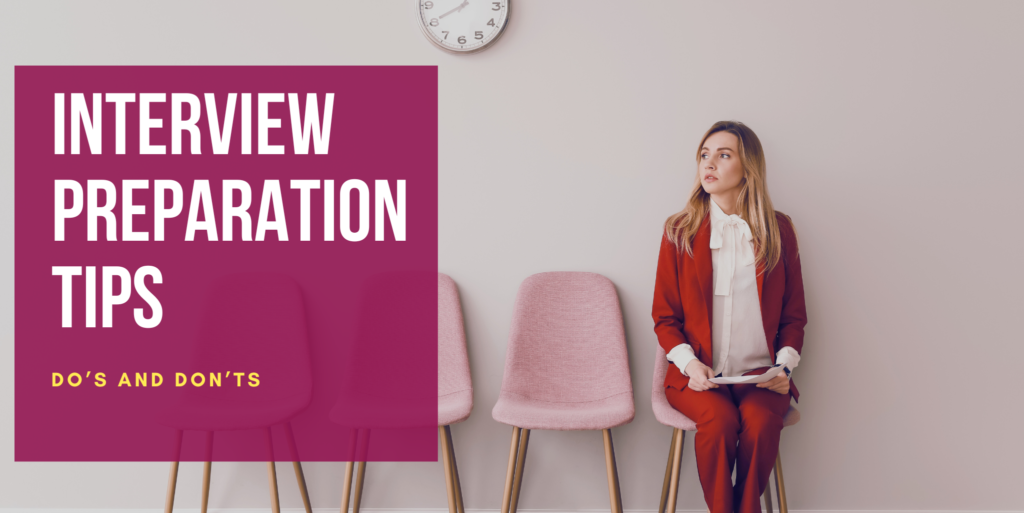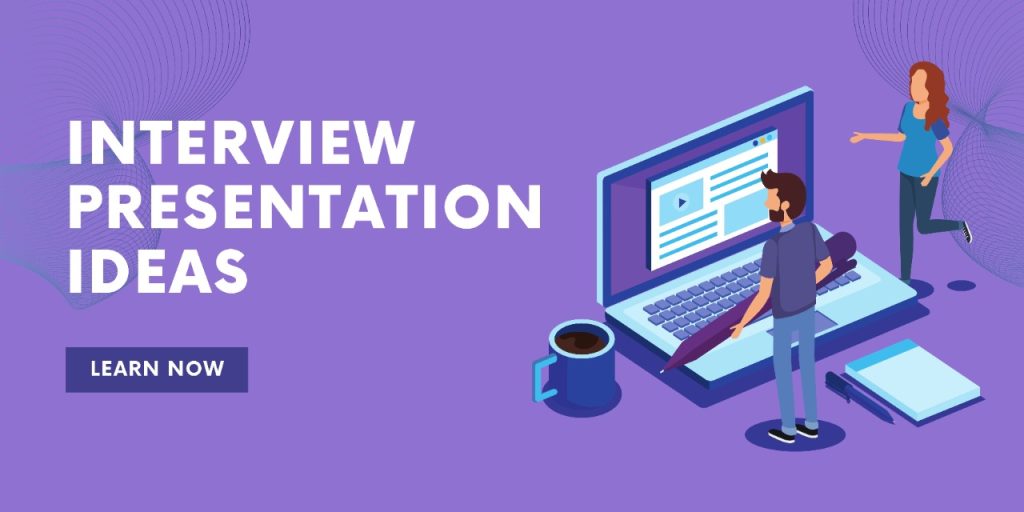Securing a job interview is one of the most important steps in reaching your career goals. However, interview preparation is as important as your qualifications and achievements if you want to succeed. We’ve put up a thorough guide of dos and don’ts to assist you get the most out of this procedure. These suggestions, which range from thorough preparation to avoiding typical errors, will improve your interview performance and raise your chances of getting the job.
Do’s of Interview Preparation:
- Conduct Thorough Company Research:
It’s essential to have a solid knowledge of the business you’re interviewing with in order to demonstrate your excitement and fit for the position. Spend some time learning about the company’s background, goals, core principles, current initiatives, and market trends. Learn about their target market, line of products and services, and competitive environment. Acquiring this knowledge will not only show that you are really interested in the firm, but it will also help you adapt your responses to fit their objectives and core values.
- Practice Your Elevator Pitch:
Developing a strong elevator pitch is an essential part of interview preparation. What makes you stand out from the competition and who you are should be briefly explained in your elevator pitch. Make sure to showcase your most important abilities, accomplishments, and experiences in addition to your desired professional path. To make a lasting first impression on the interviewer, practice giving your elevator pitch until it comes easily and confidently.
- Prepare Responses to Common Questions:
Although it’s difficult to predict every question you’ll be asked during an interview, you may prepare answers for frequently asked questions to make sure you’re prepared to explain your qualifications clearly. Think back on your past experiences, successes, challenges, and lessons gained. Then, come up with specific examples that highlight your strengths. Prepare to talk about your leadership style, problem-solving techniques, and capacity for teamwork. Specific instances and measurable outcomes can support your answers and demonstrate your fit for the position.
- Dress Appropriately:
The way you appear has a significant impact on how the interviewer perceives you as a candidate. Professionalism, consideration for the business, and attention to detail can be seen by dressing properly for the interview. Make sure that your clothing is appropriate for the event by researching business norms and the company’s dress code. Choose neat, well-fitting clothes in muted colors; avoid colorful accessories and eye-catching patterns. Ensure your nails, hair, and personal hygiene are well-groomed to project the best possible impression.
- Follow Up with a Thank-You Note:
After the interview, sending a personalized thank-you email or message is an easy yet effective approach to conveying your interest in the role and showing your gratitude for the opportunity. Use this chance to express your enthusiasm for the position once more, emphasize important topics covered in the interview, and express your gratitude to the interviewer for their time and attention. A well-written thank-you note makes a good impression on the interviewer by showcasing your manners, professionalism, and proactive communication abilities.
Don’ts of Interview Preparation:
- Neglect Company Research:
Not doing enough research on the company before the interview is one of the worst mistakes you can make. Refraining from familiarizing oneself with the organization’s past, products and services, culture, and core principles may indicate a lack of enthusiasm and planning. To learn more about the business and its standing in the industry, look at the website, social media accounts, news articles, and press releases.
- Memorize Responses:
While being ready for frequently asked interview questions is important, you shouldn’t recite planned answers to memory word for word. Giving prepared responses can make you seem robotic and insincere, which will damage your reputation as a candidate. Rather, concentrate on understanding the main ideas you wish to get over and practice speaking about them in a way that sounds genuine and natural. This approach will allow you to respond fluidly to questions while showcasing your personality and communication skills.
- Arrive Unprepared:
Unprepared for an interview is a definite technique to make things less likely for you in the job. If you don’t do your homework about the company, go over the job description, and prepare answers to frequently asked questions, you may find yourself unprepared and uncomfortable presenting your qualifications. Make sure you’re ready to share your experiences, abilities, and professional aspirations with confidence by giving yourself enough time to prepare for the interview.
- Display Negative Body Language:
During an interview, nonverbal clues can convey a lot and frequently shape the interviewer’s opinion of you as a candidate. Negative body language might be interpreted as uneasiness, indifference, or lack of confidence. Avoid slouching, crossing your arms, or avoiding eye contact. Rather, keep your shoulders squared, make eye contact, and give a solid handshake to demonstrate professionalism, interest, and enthusiasm.
- Forget to Follow Up:
You’ve lost the chance to make a good impression on the interviewer by not sending the interviewer a thank-you note afterward. Expressing gratitude for the opportunity and expressing your interest in the role can be achieved by promptly sending a specific and meaningful thank-you email or message. Don’t forget to thank the interviewer for their time and attention, emphasize important topics covered in the conversation, and restate your qualifications and excitement for the position.
Conclusion:
Careful planning, preparation, and practice are necessary for job interview preparation. You can improve your performance in the interview and raise your chances of success by adhering to the do’s and avoiding the don’ts listed in this guide. Do your homework on the firm, rehearse your elevator speech, prepare answers to frequently asked questions, dress accordingly, and send a thank-you card afterward. With diligence, confidence, and a positive attitude, you’ll be well-equipped to impress potential employers and secure the job of your dreams.
Written by: Adeeba Shah



